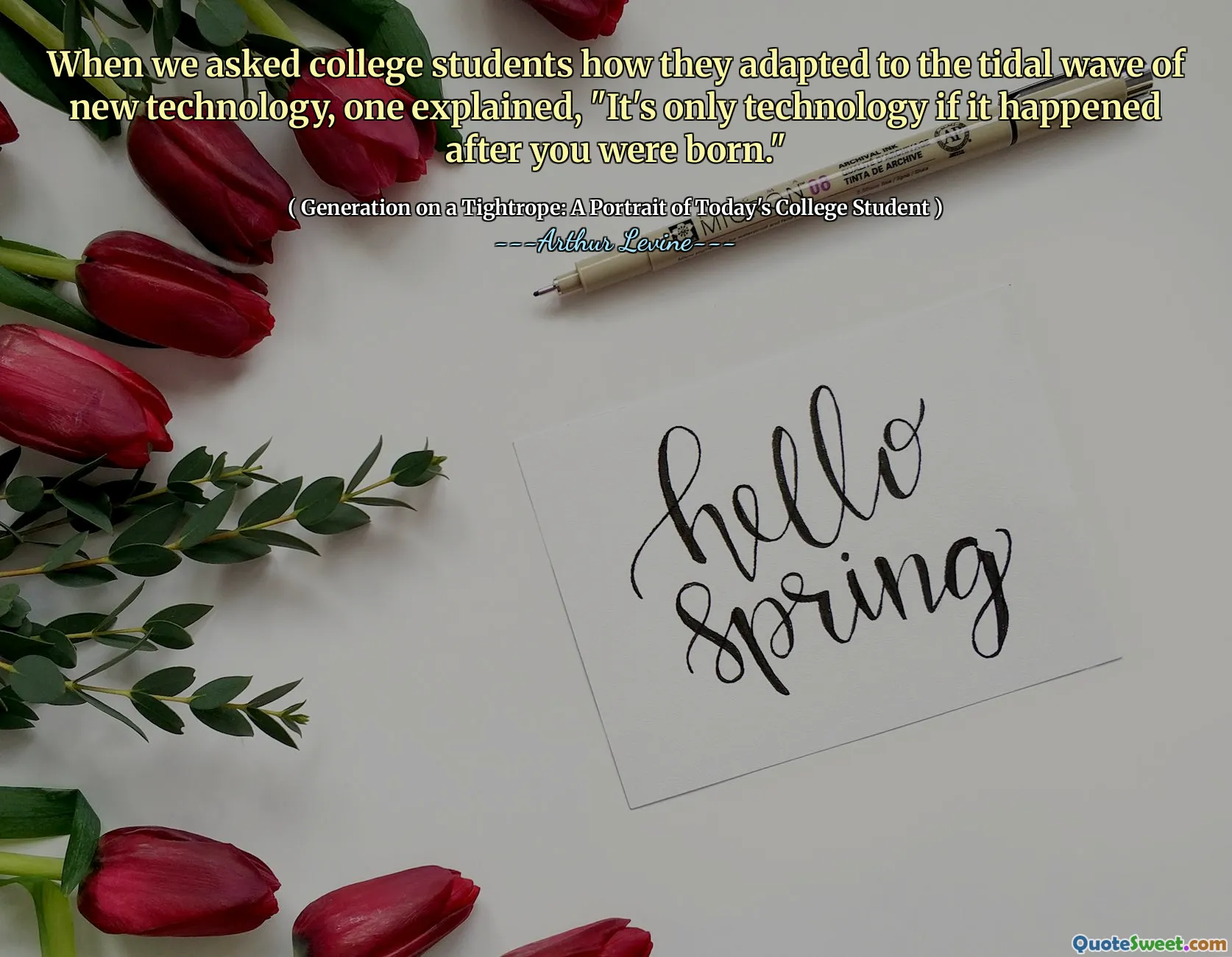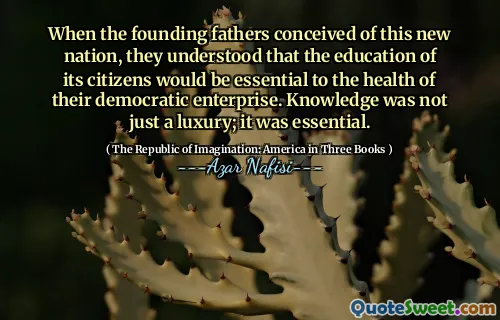
When we asked college students how they adapted to the tidal wave of new technology, one explained, "It's only technology if it happened after you were born."
This quote highlights a fascinating perspective on technology adoption and generational experience. It touches on the idea that technological change is often perceived through the lens of personal history; if a technology emerged before one's lifetime, it might be seen as normal or even outdated, whereas innovations appearing during one's lifetime are experienced as revolutionary or novel. Such a view underscores how familiarity influences our perception of progress. For today's college students who have grown up immersed in a rapidly evolving digital landscape, new technologies are almost an extension of their identity, shaping how they communicate, learn, and socialize. This continual exposure often blurs the line between what is considered 'old' or 'new,' leading to a redefining of technological boundaries. On one hand, this perspective fosters rapid adaptability, enthusiasm, and a sense of ownership over the latest devices and platforms. On the other hand, it raises questions about the depth of understanding and critical engagement with technology. If one's familiarity with change is limited to recent innovations, there might be gaps in understanding past technologies' significance, which are equally essential to fully appreciating current advancements. From an educational standpoint, this attitude urges us to think about how we introduce and contextualize technological shifts to help students connect with what came before while embracing the new. It also invites reflection on how societal perceptions of technology can influence attitudes towards change, innovation, and learning. Overall, this quote reminds us that the perception of technological relevance is deeply intertwined with personal temporal boundaries and cultural conditioning—factors that will continue to shape our collective tech journey.






